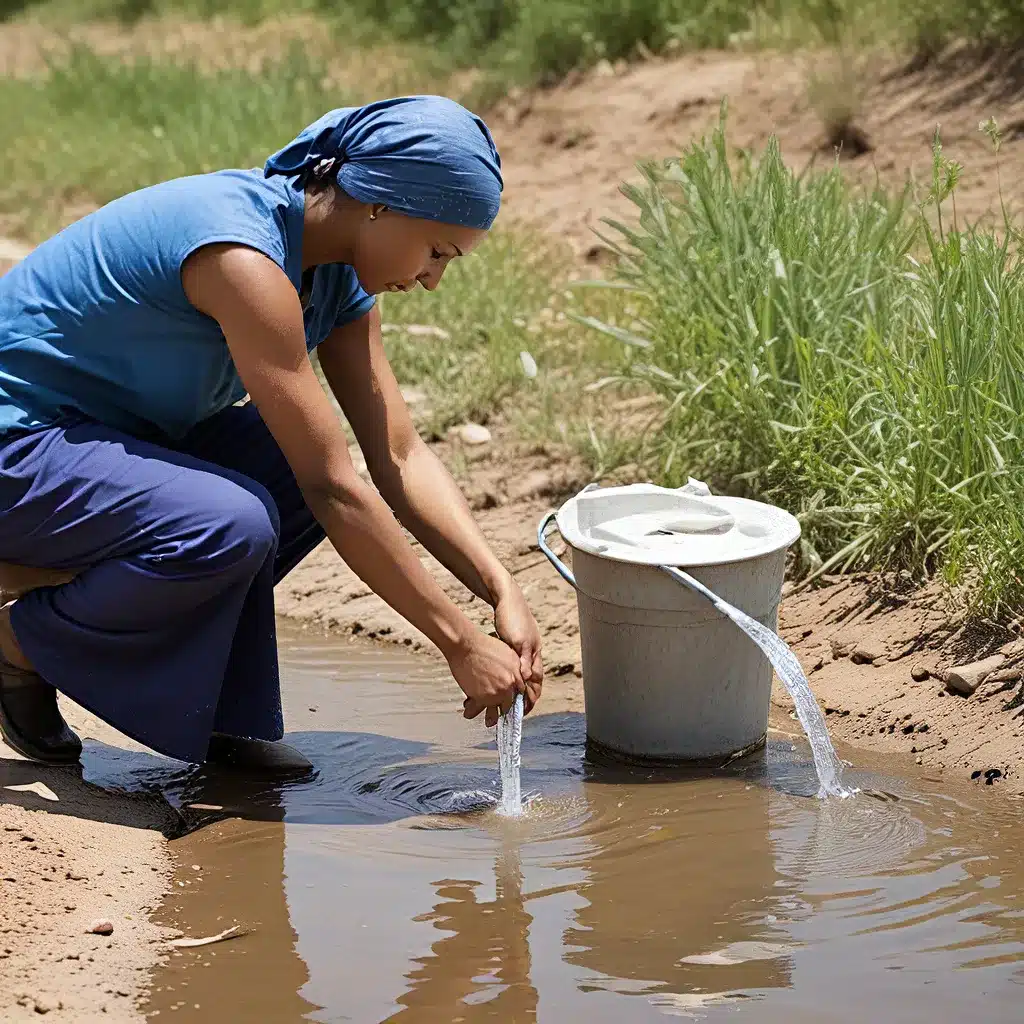
Diving into the Depths of Water Conservation
As the world grapples with the pressing issue of water scarcity, I found myself drawn to the innovative strategies and cutting-edge tools that are empowering water conservation efforts. Let me take you on a journey of discovery, where we’ll explore the frontiers of this critical endeavor.
Uncovering the Power of Community-Driven Initiatives
One of the most inspiring stories I’ve come across is that of the Jal Sahelis, or “Women Friends of Water,” in the Bundelkhand region of India. Beginning in 2005, these remarkable women from over 200 villages in Uttar Pradesh and Madhya Pradesh have revolutionized local water management. Faced with extreme water scarcity, they set out to revive traditional water bodies and harvesting systems, undertaking extensive projects to build check dams and revive ponds. The results have been nothing short of transformative, significantly improving water availability for agriculture, domestic use, and livestock.
But the Jal Sahelis’ impact goes beyond just physical infrastructure. They have also empowered over 700 women as community leaders in water management, enhancing agricultural yields, reducing migration, and bolstering food security. This community-driven initiative showcases how grassroots efforts can overcome environmental challenges and serve as a replicable model for water conservation and women’s empowerment.
Harnessing the Power of Corporate Water Stewardship
While community-driven initiatives are the bedrock of sustainable water management, the private sector also has a critical role to play. The Water Resources Institute (WRI) has been at the forefront of empowering companies to reduce their water-related business risks and drive innovation in water-related data tools and strategies. By working with WRI, companies like Cargill, Tyson Foods, and Ecolab have been able to assess their water risks, advance sustainable water management, and prepare for current and future water and climate shocks.
WRI’s Corporate Water Stewardship initiative has helped these companies leverage powerful data tools like the Aqueduct Water Risk Atlas to identify and mitigate water-related risks across their operations and value chains. This has resulted in tangible successes, such as Cargill setting contextual water targets and Ecolab developing publicly available tools like the Water Risk Monetizer and Ecolab Smart Water Navigator.
Leveraging Technology for Sustainable Water Solutions
As we delve deeper into the world of water conservation, it’s impossible to overlook the transformative role of technology. Innovative tools and strategies are empowering us to better understand and manage our water resources. From advanced data analytics and machine learning to cutting-edge water treatment technologies, the possibilities for sustainable water solutions are endless.
One fascinating example is the use of environmental DNA (eDNA) to monitor aquatic ecosystems. By analyzing the genetic material shed by organisms in water, scientists can gain valuable insights into the health and biodiversity of these critical habitats. This data can then be used to inform conservation efforts and guide decision-making processes.
Similarly, the rise of smart water management systems is transforming the way we approach water distribution and usage. Inland Waters, a leading water treatment and environmental services provider, is at the forefront of this revolution, offering cutting-edge solutions that leverage the power of the Internet of Things (IoT) and artificial intelligence. Their smart water meters and intelligent control systems enable real-time monitoring and optimization of water consumption, ultimately empowering communities to make more informed decisions and reduce their water footprint.
The Ripple Effects of Empowering Women
As we continue to explore the multifaceted world of water conservation, it’s important to acknowledge the profound impact that empowering women can have on these efforts. The story of the Jal Sahelis is a testament to the transformative power of women-led initiatives. By investing in the leadership and decision-making capabilities of women, we can unlock a wealth of knowledge, creativity, and community-driven solutions.
Beyond the Jal Sahelis, the partnership between Standard Chartered Bank and Habitat for Humanity India has also demonstrated the far-reaching effects of empowering women through skill training and microfinance for micro-businesses. This initiative, focused on Chhattisgarh, Maharashtra, and Odisha, has strengthened self-help groups across 85 villages, enhancing women’s economic participation and leadership. By challenging sociocultural norms and fostering entrepreneurship, these efforts have contributed to significant socioeconomic development, with tangible impacts on women’s income and community roles.
Embracing the Future of Water Conservation
As we look to the future, the path forward in water conservation is paved with hope, innovation, and a deep commitment to sustainable stewardship. The stories and examples we’ve explored today are but a glimpse into the extraordinary work being done to empower communities, harness the power of technology, and elevate the role of women in this critical endeavor.
By continuing to invest in community-driven initiatives, corporate water stewardship, and cutting-edge technological solutions, we can collectively ensure that the water resources we all depend on are protected, preserved, and equitably distributed. It’s a journey that requires collaboration, creativity, and a unwavering dedication to the well-being of our planet and its people.
So, let us embrace the future of water conservation, where innovative strategies and empowering tools converge to create a more sustainable, resilient, and equitable world. The time to act is now, and the rewards of our efforts will ripple far beyond our own lifetimes.


